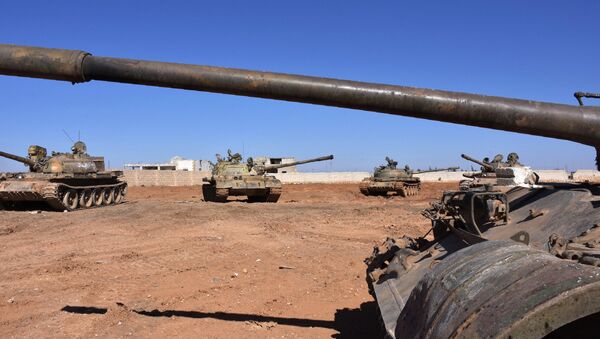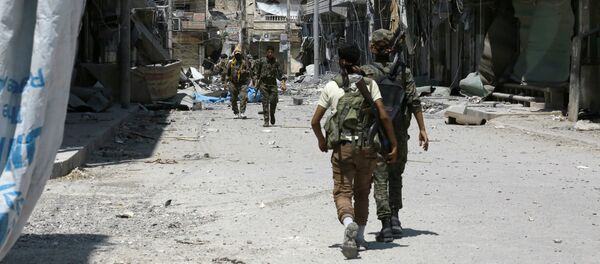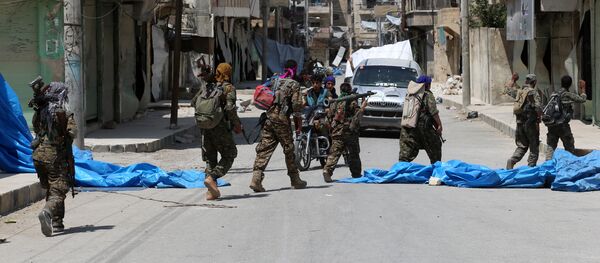"The Syrian Democratic Forces (SDF) have reached a deal with Russia to cede control over areas and settlements to the west of Manbij along the contact line with the Operation Euphrates Shield forces to the Syrian Arab Army," the Manbij Military Council said in a statement, released on March 2. A day later, Lt. Gen. Sergei Rudskoy, chief of the Russian General Staff Main Operational Directorate, confirmed this information.
Ankara ostensibly launched Operation Euphrates Shield to push Daesh out of northern Syria and prevent Kurdish militias from creating a single area on the border with Turkey. The campaign was largely focused on liberating al-Bab in recent months, with the Turkish military and Ankara-backed rebels taking the city under control on February 23.
Abd Salam Muhammad Ali, a representative of the Democratic Union Party (PYD) in Russia, pointed out that Turkey's military operation risks forcing the Kurds to fight on two fronts, against Daesh in Raqqa and Ankara-backed rebels in northern Syria. This appears to be one of the key reasons that prompted the Kurds to reach an agreement with Damascus.
"An alliance between the Kurds and the pro-government forces is feasible," Ali told RBC. He emphasized that the Kurds are not opposed to the Syrian government or President Bashar al-Assad and are not trying to overthrow him, adding that their primary objective is to make sure that the rights of minorities in Syria are protected under the new constitution.
Konstantin Truevtsev, a researcher at the Institute of Oriental Studies of the Russian Academy of Sciences, told RBC that Moscow and Damascus will not allow Ankara to capture more territories that are currently administered by the Kurds. Turkey will have to "abandon its plans" to advance deeper into Syria, he added.
Never miss a story again — sign up to our Telegram channel and we'll keep you up to speed!




